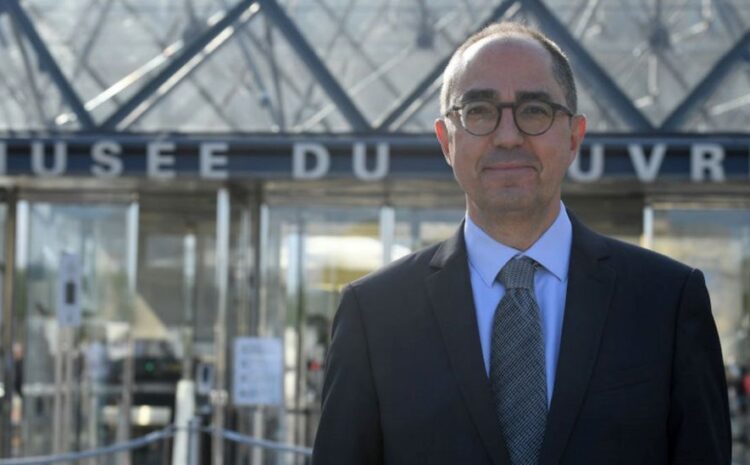
IMAGE SOURCE, GETTY IMAGES Image caption, Jean-Luc Martinez was president of the Louvre from 2013 until last year
French investigators allege Jean-Luc Martinez facilitated the transfer of the objects to the Louvre Abu Dhabi.
They reportedly include a granite stele inscribed with the seal of the ancient Egyptian pharaoh, Tutankhamun.
Mr Martinez denies the charges and insists that he acted in good faith.
There was no immediate comment from the Paris Louvre or Louvre Abu Dhabi.
Mr Martinez was president of the Louvre from 2013 until he stepped down last summer. Since then, he has been France’s ambassador for international co-operation on heritage – a role that involves him helping to combat art trafficking.
The weekly newspaper, Le Canard enchainé, which broke the story, said investigators were trying to establish whether Mr Martinez “closed his eyes” to fake provenance certificates for a handful of Egyptian antiquities, bought by the Louvre in Abu Dhabi in 2016, for millions of euros.
Among the items, the paper said, was the Tutankhamun stele.
The Louvre Abu Dhabi lists as part of its collection a rose-coloured granite stele from about 1327BC, on which the boy pharaoh is shown giving offerings to the god Osiris and also receiving offerings from a high-ranking official.
A prominent French Egyptologist who queried the provenance of the stele in 2018, Marc Gabolde, told Le Canard enchainé that his questions to the Louvre had remained unanswered.
Lawyers for Mr Martinez said he disputed his questioning in the case “with the greatest firmness”, and that he had “no doubt that his good faith will be established”.
